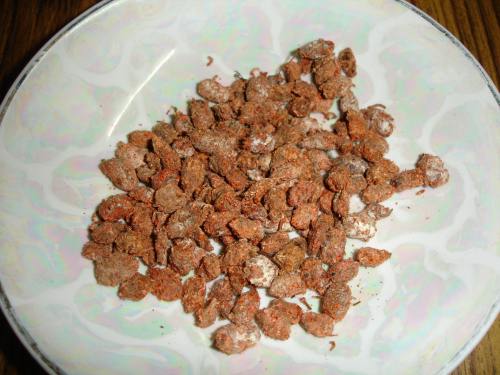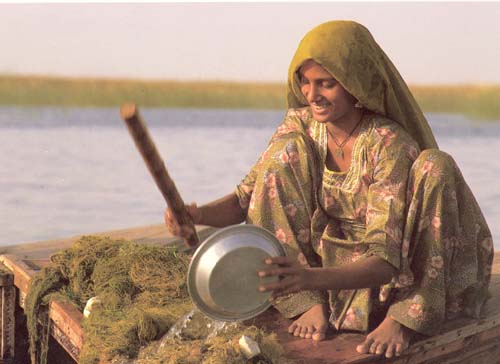|
Dawakhana Shifaul Amraz
Dawakhana Shifaul Amraz (Regd), was a Unani pharmaceutical company established in 1894 at Tijara, India. It was one of the largest manufacturer of many Unani medicine before the partition of India. History Dawakhana Shifaul Amraz was a registered Unani polyclinic and pharmaceutical company established in 1894 by Hakim Syed Karam Husain at Tijara, Rajputana, (Alwar). It was a flourishing Dawakhana until 1947. After the partition of India, it was relocated and moved to Jinsi Road, Jahangirabad, Bhopal. In 1975, another branch of the 'Dawakhana' was set up at Aligarh where it lasted till 1994. The main Dawakhana at Bhopal existed till the year 2000 AD. Post Office Dawakhana At Tijara, Dawakhana Shifaul Amraz grew to the extent in terms of the demand and distribution of its drugs that the Indian Postal Service, during the British rule of India, had to establish a separate post office at the premises of the Dawakhana itself. A British postmaster Mr. Bolard (Superintendent Post Offices ... [...More Info...] [...Related Items...] OR: [Wikipedia] [Google] [Baidu] |
Hakim Syed Karam Husain
Hakim Syed Muhammad Karam Hussain (1870–25 June 1953) () was an Unani practitioner from Tijara, Alwar. Biography Education After initial education from his hometown 'Tijara', he moved to Meerut at the age of 14 years. In Meerut, he took expertise, knowledge and proficiency on ‘ Unani Tibb’ from two leading practitioners 'Hakim Mohammad Hasan Haziq' and 'Hakim Baldev Sahai'. Hakim Hasan Haziq (died 1928) was the author of many books on Unani medicine including 'Lataif-e Ghalib' from Naami Press, Meerut, while Hakim Baldev Sahai was himself a student of Hakim Ahsanullah Khan, prime minister and royal physician to Emperor Bahadur Shah Zafar of Delhi. Practicing Unani medicine Hakim Syed Karam Husain started practicing Unani at Tijara, Alwar in early 1893. He established his own Unani pharmaceutics, by the name of, Dawakhana Shifaul Amraz in 1894 . He was a personal Unani physician of Maharaja of Alwar Jai Singh Prabhakar (1882–1937) and has been a standing committee memb ... [...More Info...] [...Related Items...] OR: [Wikipedia] [Google] [Baidu] |
Unani Medicine Organisations
Unani or Yunani medicine (Urdu: ''tibb yūnānī'') is Perso-Arabic traditional medicine as practiced in Muslim culture in South Asia and modern day Central Asia. Unani medicine is pseudoscientific. The term '' Yūnānī'' means 'Greek', referring to the fact that the Perso-Arabic system of medicine was based on the teachings of the Greek physicians Hippocrates and Galen. The Hellenistic origin of Unani medicine is still visible in its being based on the classical four humours: phlegm (), blood (''dam''), yellow bile (''ṣafrā'') and black bile (''saudā), but it has also been influenced by Indian and Chinese traditional systems. History Arab and Persian elaborations upon the Greek system of medicine by figures like Ibn Sina and al-Razi influenced the early development of Unani. Unani medicine interacted with Indian Buddhist medicine at the time of Alexander's invasion of India. There was a great exchange of knowledge at that time which is visible from the similarity ... [...More Info...] [...Related Items...] OR: [Wikipedia] [Google] [Baidu] |
Pharmaceutical Companies Of India
Medication (also called medicament, medicine, pharmaceutical drug, medicinal product, medicinal drug or simply drug) is a drug used to diagnose, cure, treat, or prevent disease. Drug therapy (pharmacotherapy) is an important part of the medical field and relies on the science of pharmacology for continual advancement and on pharmacy for appropriate management. Drugs are classified in many ways. One of the key divisions is by level of control, which distinguishes prescription drugs (those that a pharmacist dispenses only on the medical prescription) from over-the-counter drugs (those that consumers can order for themselves). Medicines may be classified by mode of action, route of administration, biological system affected, or therapeutic effects. The World Health Organization keeps a list of essential medicines. Drug discovery and drug development are complex and expensive endeavors undertaken by pharmaceutical companies, academic scientists, and governments. As a resu ... [...More Info...] [...Related Items...] OR: [Wikipedia] [Google] [Baidu] |
Pharmaceutical Companies Established In 1894
Medication (also called medicament, medicine, pharmaceutical drug, medicinal product, medicinal drug or simply drug) is a drug used to diagnose, cure, treat, or prevent disease. Drug therapy (pharmacotherapy) is an important part of the medical field and relies on the science of pharmacology for continual advancement and on pharmacy for appropriate management. Drugs are classified in many ways. One of the key divisions is by level of control, which distinguishes prescription drugs (those that a pharmacist dispenses only on the medical prescription) from over-the-counter drugs (those that consumers can order for themselves). Medicines may be classified by mode of action, route of administration, biological system affected, or therapeutic effects. The World Health Organization keeps a list of essential medicines. Drug discovery and drug development are complex and expensive endeavors undertaken by pharmaceutical companies, academic scientists, and governments. As a result o ... [...More Info...] [...Related Items...] OR: [Wikipedia] [Google] [Baidu] |
Hamdard Laboratories (Waqf)
Hamdard Pakistan, () is a Pakistani unani medicine company which is based in Karachi, Pakistan. It was established by Hakim Saeed as Hamdard Laboratories (Waqf) in 1948. History Hakim Abdul Majeed (1883 – 1922) founded an organization called Hamdard Dawakhana in Delhi in 1906. At that time, it was a small clinic and herbal medicine shop. Abdul Majeed had come from a family that included many herbal doctors, and he joined the herbal pharmacy of the renowned Unani physician Hakim Ajmal Khan. As he developed his knowledge of medicine, he became a Hakim and decided to establish his own pharmacy and clinic, which he called Hamdard Dawakhana. Rooh Afza syrup was officially launched in 1907. In 1940, Abdul Majeed's youngest son Hakim Mohammed Saeed joined Hamdard Dawakhana. By 1947, Hamdard became a prominent manufacturer of herbal products and medicines in the Indian subcontinent. After the independence of Pakistan in 1947, Saeed, at the age of 29, migrated to Pakistan on ... [...More Info...] [...Related Items...] OR: [Wikipedia] [Google] [Baidu] |
Hamdard (Wakf) Laboratories
Hamdard Laboratories (India) is a Unani pharmaceutical and food company in India. It was established in 1906 by Hakeem Hafiz Abdul Majeed in Delhi, and became a waqf (non-profitable trust) in 1948. Some of its most popular products include Sharbat Rooh Afza, Safi, Roghan Badam Shirin, Sualin, Joshina and Cinkara. It is associated with Hamdard National Foundation, a charitable educational trust. History Hamdard Laboratories was founded in 1906 in Delhi by Hakeem Hafiz Abdul Majeed and Ansarullah Tabani, who were both Unani practitioners. The name Hamdard (Urdu: ہمدرد) is a Persian word which means "companion in suffering". Hakim Hafiz Abdul Majeed was born in the city of Pilibhit, in modern-day Uttar Pradesh in 1883 to Sheikh Rahim Bakhs. He is said to have learnt the complete Quran Sharif by heart. He also studied the origin of Urdu and Persian languages. Subsequently, he acquired the highest degree in the unani system of medicine. Hakim Hafiz Abdul Majeed got in ... [...More Info...] [...Related Items...] OR: [Wikipedia] [Google] [Baidu] |
Hakim Syed Fazlur Rahman
Hakim, Muhammad-Al-Hakim or Muhammad-Al Hakim may refer to: * Al-Ḥakīm (), one of the names of God in Islam, meaning "The All-Wise" * Hakim (title), two Arabic titles: Ḥakīm, a learned person or physician; and Ḥākim, a ruler, governor or judge. People * Hakim (name), an Arabic masculine name, including a list of people bearing this name * Al-Hakim al-Nishapuri (933–1014), Persian Sunni scholar and a Muhaddith, frequently referred to as the "Imam of the Muhaddithin" or the "Muhaddith of Khorasan." * Al-Hakim bi-Amr Allah (996–1021), sixth Fatimid caliph in Egypt and 16th Ismaili imam * George Habash (1926–2008), also known as "Al Hakim", Palestinian Marxist revolutionary and physician Other uses * Hakim Rifle, an Egyptian rifle * Hakim Stout, a beer made in Ethiopia by Harar Brewery * Hakim Expressway, Tehran, Iran See also * * Al-Hakam (other) * Joaquim and Joaquin, Portuguese and Spanish names sometimes pronounced similarly *Hakeem Hakeem is an Arabi ... [...More Info...] [...Related Items...] OR: [Wikipedia] [Google] [Baidu] |
NFCC
The PFF National Challenge Cup is an annual single-elimination tournament, knockout association football, football competition in men's domestic Football in Pakistan, Pakistani football within the Pakistan football league system. It is organized by and named after the Pakistan Football Federation. Initially named as ''Inter Departmental Championship'', it was introduced in 1979 as a football tournament for departmental selections and Pakistan Armed Forces, armed forces teams excluded from the National Football Championship (Pakistan), National Football Championship of Pakistan''.'' Khan Research Laboratories F.C., Khan Research Laboratories have won the most titles (six). WAPDA F.C., WAPDA are the current champions, winning the 2023–24 PFF National Challenge Cup, 2023–24 edition courtesy of a 1–0 win against SA Gardens FC, SA Gardens in the final. Background Introduced in 1979 to offer nationwide competition to departmental selections and Pakistan Armed Forces, armed force ... [...More Info...] [...Related Items...] OR: [Wikipedia] [Google] [Baidu] |
Tando Allahyar
Tando Allahyar (, ) is a city and capital of Tando Allahyar District of Hyderabad Division located in Sindh, Pakistan. As of 2023 Pakistani census, Tando Allahyar Taluka had a population of 421,923. History Tando Allahyar was founded during the rule of Talpur, of the Mir clan. When Bachal Yousfani was mayor, inns and guest houses were built as well as colonies for residents and jobs were created. Watayo Faqir's shrine The shrine of the sindhi oracle and that man was presented thinks his own wisdom Sufi poet Watayo Faqir lies at Kuba Shareef near Rashidabad. 1709 fort construction Tando Allahyar was founded in 1709 when Talpur constructed a mud and clay fort about from the present day Tando Allahyar town center. The fort was built to provide security for the Mir and the people of the area. It also functioned as a trading post. As the township developed around the fort, it was known as "Allahyar Jo Tando" (Allahyar's Town). The fort is now called "Kacho Qilo". Some wa ... [...More Info...] [...Related Items...] OR: [Wikipedia] [Google] [Baidu] |
Pakistan
Pakistan, officially the Islamic Republic of Pakistan, is a country in South Asia. It is the List of countries and dependencies by population, fifth-most populous country, with a population of over 241.5 million, having the Islam by country#Countries, second-largest Muslim population as of 2023. Islamabad is the nation's capital, while Karachi is List of cities in Pakistan by population, its largest city and financial centre. Pakistan is the List of countries and dependencies by area, 33rd-largest country by area. Bounded by the Arabian Sea on the south, the Gulf of Oman on the southwest, and the Sir Creek on the southeast, it shares land borders with India to the east; Afghanistan to the west; Iran to the southwest; and China to the northeast. It shares a maritime border with Oman in the Gulf of Oman, and is separated from Tajikistan in the northwest by Afghanistan's narrow Wakhan Corridor. Pakistan is the site of History of Pakistan, several ancient cultures, including the ... [...More Info...] [...Related Items...] OR: [Wikipedia] [Google] [Baidu] |



